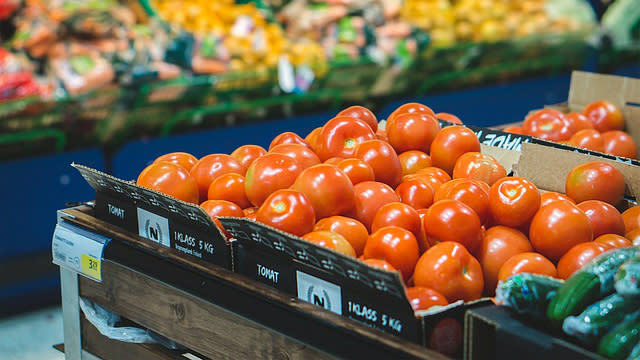Why Canadian Grocery Stores Are No Match for Amazon.com, Inc.

While the focus in 2018 is on rising minimum wages and a price-fixing scandal, the big threat to Canadian grocers could still be many years away.
Since Amazon.com, Inc. (NASDAQ:AMZN) announced that it was entering the grocery industry with the purchase of Whole Foods last year, it has sent many companies into a panic. Even in Canada, where Whole Foods has a small footprint, grocers have gotten concerned, and it?s not hard to see why given the success Amazon has had over the years.
We?ve already seen many grocers become more aggressive when it comes to offering home delivery in advance of competition that looks to be inevitable from the tech giant. Back in November, Loblaw Companies Ltd. (TSX:L) announced a partnership with Instacart, where groceries could be delivered in as little as an hour, and Wal-Mart Stores Inc. (NYSE:WMT) already offers delivery in several cities.
Most recently, it was announced that Sobeys, which is owned by Empire Company Limited (TSX:EMP.A), will also be entering the realm of home delivery services. However, with the service not expected to be in place until two years from now and just in the Greater Toronto Area, it might be too little, too late.
Sobeys will work with U.K.-based Ocado to help provide its customers with what CEO Michael Medline describes as ?the biggest selection, freshest products and most reliable delivery available anywhere on the planet.? The company is clearly playing the long game as it is focusing on selection, freshness, and reliability over speed of entry.
Is competition from big tech too much for Canadian grocers?
It?s a big win for Canadian consumers to see that their local grocery stores are trying to rival Amazon?s innovation, but the long game could be even more daunting. Amazon hasn?t set its focus on the Canadian market just yet, but if and when it does, the results could be devastating.
While home delivery is essential to compete with Amazon, the tech company isn?t just sitting idle. To truly compete with Amazon means to be constantly innovating and staying current with the latest technologies.
When Sobeys announced its home delivery, Amazon was set to launch Amazon Go, a cashierless store without any checkout lanes. Although the store is only in Seattle right now, the speed at which Amazon expands should have U.S. retailers worried about the success the model has achieved already.
It also underscores just how many light years ahead Amazon is of Canadian retailers. If grocery stores in Canada believe that offering home delivery will be enough to compete with Amazon, then it might be time to just start packing up.
The saving grace for Canadian companies is that Amazon?s focus remains on the U.S. market, and it might be many years before we see these advancements north of the border. While Sobeys may not be at the cutting edge of technology anytime soon, it?s definitely a welcome sign in an industry that has over the past not shown much innovation at all.
The problem is that regardless of how much effort Loblaw or Sobeys exert in order to innovate and offer new services, it?s hard to see these retailers putting up much of a fight with Amazon over the long term.
More reading
The surprising new technology that could create the world's very first TRILLIONAIRE
2 Undervalued Canadian Dividend Stocks to Buy for Your TFSA Freedom Fund in 2018
John Mackey, CEO of Whole Foods Market, an Amazon subsidiary, is a member of The Motley Fool's board of directors. Fool contributor David Jagielski has no position in any of the stocks mentioned. David Gardner owns shares of Amazon. The Motley Fool owns shares of Amazon.

 Yahoo Finance
Yahoo Finance 